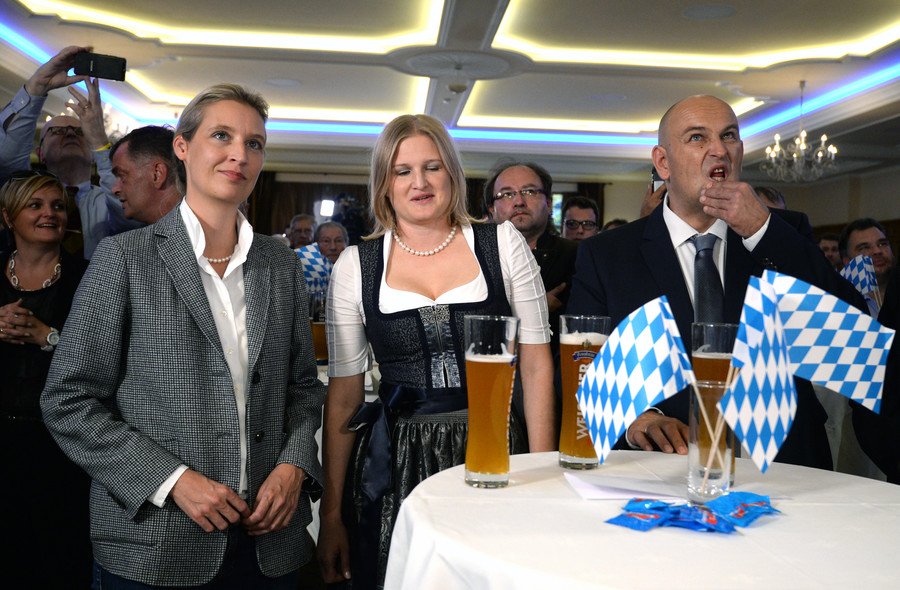Merkel's sister party CSU suffers worst election result since 1950 in Bavaria
Germany’s political landscape is crumbling as Merkel’s sister party, the CSU, has only received 37.3% of the votes in Bavaria, preliminary results show. Meanwhile, the right-wing AfD has entered parliament for the first time.
Voters in Bavaria headed to the polls to decide on the composition of the 180-member parliament on Sunday. The Christian Social Union (CSU) – sister party to Merkel’s Christian Democratic Union (CDU) – gained 37.3 percent in Germany’s largest and second most populous state, according to an exit poll for broadcaster ARD.
It represents the worst election result since 1950, and a loss of its absolute majority for only the second time since 1962. It means the CSU will now have to form a coalition.
CSU General Secretary Markus Blume has called it a "bitter day for the CSU," while declining to comment on possible coalitions.
Bavaria's Prime Minister Markus Söder of the CSU also said it is "not an easy day." However, he called his party "the strongest party" and added that the most important task is to keep the country stable and governable.
The election can be seen as a blow to Merkel, since her party is not present in Bavaria at all, with the CSU effectively being the Chancellor’s ‘hand’ there. CSU, in turn, is not present in any other federal state.
Die Linke member Bijan Tavassoli told RT that the result sends a clear message of what the people want - and it isn't Angela Merkel.
"Even though Angela Merkel was not on the ballot tonight, she was on the ballot. And the vote was a clear vote to end the era of Merkel."
The last time Merkel’s allies failed to hold an absolute majority in parliament was in 2008, when the CSU received about 43 percent of the vote and had to enter a coalition with liberal Free Democratic Party (FDP).
The results are a major drop from the last election in 2013, which saw the CSU win an absolute majority, gaining nine seats in the local parliament, known in Bavaria as the Landtag.
The CSU loss and AFD gain are part of a wider trend happening across Germany, as Merkel has been losing support nationwide. With the breakthrough in Bavaria, the right-wing AfD is now present in 15 out of 16 federal states.
Ahead of the election, AfD MP Petr Bystron told RT that the ruling coalition “is massively losing its people,” while the AfD has “a big part of their electorate.”
Preliminary results also show that the Greens placed second with 17.8% and the Free Voters came in third at 11.6%. Trailing behind was the AfD with 10.7% and the Social Democrats with 9.5%. In dead last were the FDP with 5% and the Left Party with 3.5%.

The Sunday outcome also could be an early forecast of the upcoming October 28 election in neighboring Hessen, where conservative Volker Bouffier aims to defend the 19 year hold of Merkel's CDU on the governor's office.
Think your friends would be interested? Share this story!














